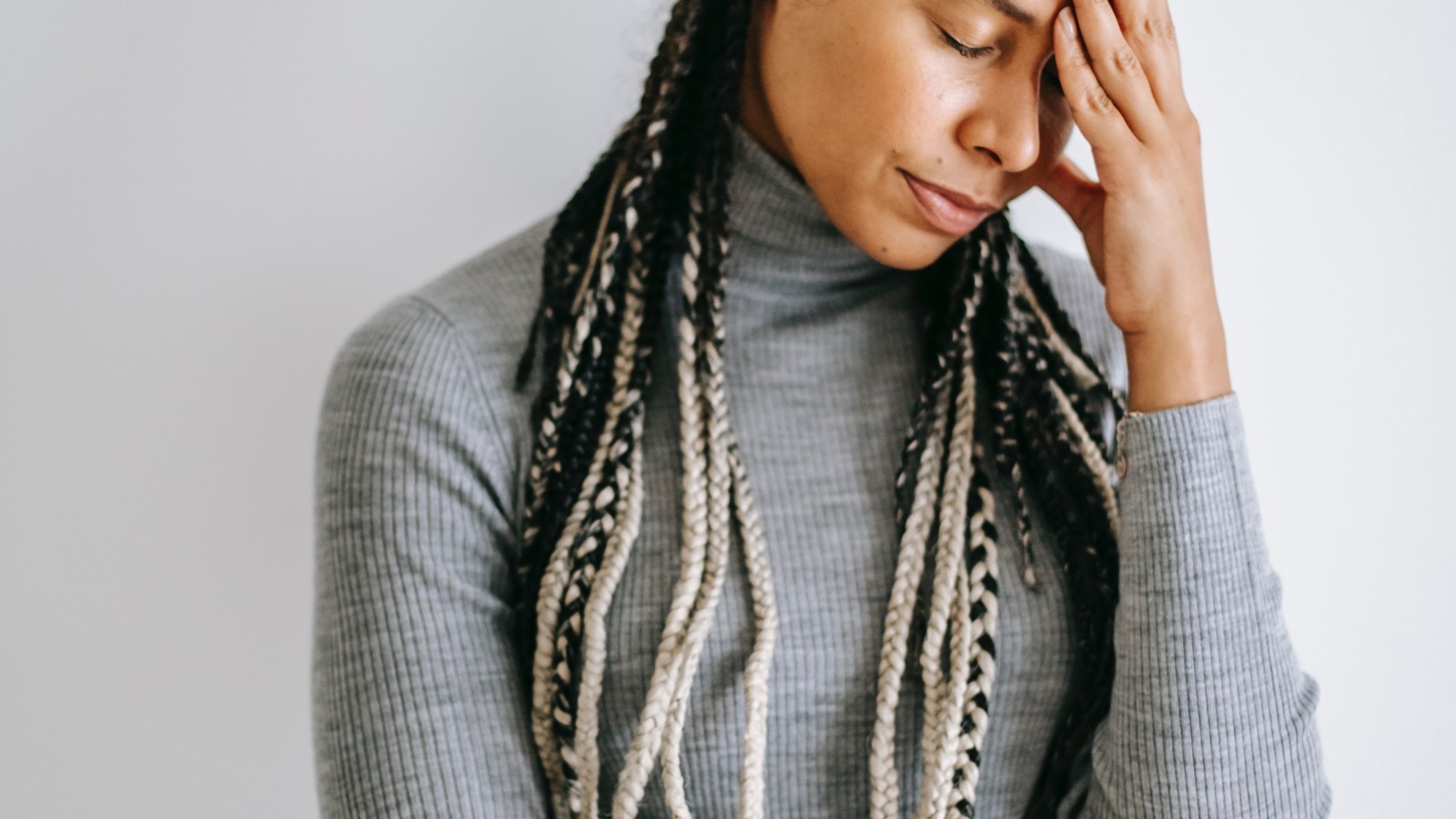After a year of living in a global pandemic, we’re finally able to see the light at the end of the tunnel: post-vaccination life. Many places around the world are gearing up to open society back up again, which – don’t get us wrong – we’re all happy about.
But there’s also a feeling of underlying anxiety that comes along with getting back into the swing of things; experts are calling it “re-entry anxiety”. It’s important that we all examine our feelings to recognize re-entry anxiety in ourselves and others, and have the skills to cope with it.
What Is Re-Entry Anxiety?
It’s new that a global pandemic is ending and the entire world is being thrust back out into society after being isolated for a year – but the concept of re-entry anxiety isn’t new. Think about the formerly incarcerated population, for example. After being – literally – in lockdown for a while, it’s common for people who are coming out of the prison complex and “re-entering” society to feel a certain level of anxiety or fear.
Not to compare our experience with the horrors of incarceration in any way, but to a certain extent, most of us have been locked up for the past year: locked away from our relationships, our favorite restaurants, and from public life in general. It’s completely natural to feel anxious and fearful about getting back out there.
None of us are sure what life on the other side is going to look like. Are we really in the clear after we all get vaccinated? Is it safe to be working in an office or sitting in a classroom? Is life – really and truly – going to go back to normal? And, if you’re a WOC: am I safe from hate crimes against AAPI people? From the police? From the world? There are so many questions swirling around in our heads, and that uncertainty causes anxiety.
How To Recognize Re-Entry Anxiety
Anxiety has almost become an ordinary, expected part of life over the last year. How can we know if what we’re feeling is re-entry anxiety? You might be suffering under the pressure of re-entry anxiety if:
- You feel anxious and overwhelmed when you start thinking about post-pandemic life
- Your anxiety about catching and/or spreading the virus has increased
- You’re having a hard time sleeping or sleeping too much
- You’ve experienced changes in your appetite (eating more or less than usual)
- You feel fear when thinking about engaging in activities that you used to enjoy pre-pandemic
- You’re experiencing physical symptoms, like stomach pain, nausea, or dizziness
- You feel social anxiety. You feel worried that, after so long, you’ve forgotten how to socialize
If you recognize yourself or a loved one in these symptoms, you might be suffering from re-entry anxiety. You’re far from alone. Most of us are feeling these fears to varying extents, but there are healthy ways you can cope with them.
Tips For Coping With Re-Entry Anxiety
We get it: it’s going to be hard to get ourselves back out there. But, as always, we at Witted Roots got your back. Here are 5 of our best tips for how to cope with this intense anxiety that we’re all feeling.
Be Mindful
You’ll often hear us hyping up mindfulness as a way to deal with anxiety and stress, but that’s because it works: research shows that a regular mindfulness practice goes a long way in reducing symptoms of depression and anxiety and making us feel happier overall.
Sitting down for a few minutes a day to practice meditation is a great starting point, but we’re talking about mindfulness on a bigger, more everyday scale. Pay close attention to how you’re feeling – right now, in the present moment. Notice what kind of situations trigger your anxiety. It’s so easy to get caught in auto-pilot mode. Noticing how you feel on a moment-by-moment basis is the first step to healthily managing our emotions.
Take It One Step at a Time
If you don’t feel comfortable jumping two feet in as life gets back to “normal”, that’s okay. Be gentle with yourself, and take things one step at a time. Especially if you’re at high-risk for contracting COVID-19 (or you live with someone who is), it’s understandable that you might not want to run back to your favorite (crowded) coffee shop the minute it re-opens.
Tell yourself: baby steps. Re-entry doesn’t have to be a plunge in the deep end; it can be a slow crawl. Start with the things and places you’re most comfortable with. Maybe you feel safe-ish going to a rooftop bar, for example, but you still don’t want to be in any crowded, enclosed spaces.
Maybe one day, you’ll feel okay enough to see your friends, and the next day you’ll feel overwhelmed and want to start isolating yourself again. That’s okay: every person’s journey back into society will look differently. Take it as it comes – one baby step at a time.
Things Will Be Different: Embrace It
It’s going to be important for all of us to embrace the concept of change. Things might not look the same as they did pre-pandemic. Completely carefree social events and travel still feel far into the future. Masks will continue to be a key part of our cutest outfits, probably for a long time to come.
Things might not go back to exactly “how they used to be”, so embrace that. Fighting change, in general, only leads to increased stress and anxiety. Slip-on that sexy mask and learn to roll with the punches.
Stay Safe And Informed
Things might be opening back up again, and vaccines are rolling out – but that doesn’t mean we’re 100% in the clear. Pretending we are is only going to make your re-entry anxiety worse.
Know your state guidelines, which will vary depending on where you live. The CDC still recommends wearing masks when you’re around people, avoiding enclosed or crowded spaces, and maintaining a healthy social distance (at least 2 arms’ length) as much as possible.
Knowing you’re doing what you can to stay as safe as possible will go a long way to lower your risks of getting infected and decrease your feelings of anxiety, too.
Get Support
Whether it’s the support of your crew or professional support from a therapist, one thing’s for sure: you need support. We all do!
We’re not going to tell you that every single person who’s re-entering into society this year (most of us) is going to need professional help. But we’re not saying that would be a bad thing, either. Decades of research have proved that psychotherapy is an effective intervention for any kind of anxiety.
We’ve come a long way, but the stigma against mental health treatment is still very real. It’s 100% up to you to decide if you want to start seeing a therapist, but make sure that the stigma isn’t what’s keeping you from it.
If you don’t think that’s what you need, rely on your friends and loved ones. Talk to someone you trust about how you’re feeling. We’re all in this together, and your friends will likely understand.
You’re Not Alone
If one thing’s for sure, it’s that you’re not alone in feeling anxious or unsure about getting back into “normal life”. The community here at Witted Roots always has your back. We are always rooting for you.
This article was originally published on www.WittedRoots.com.


